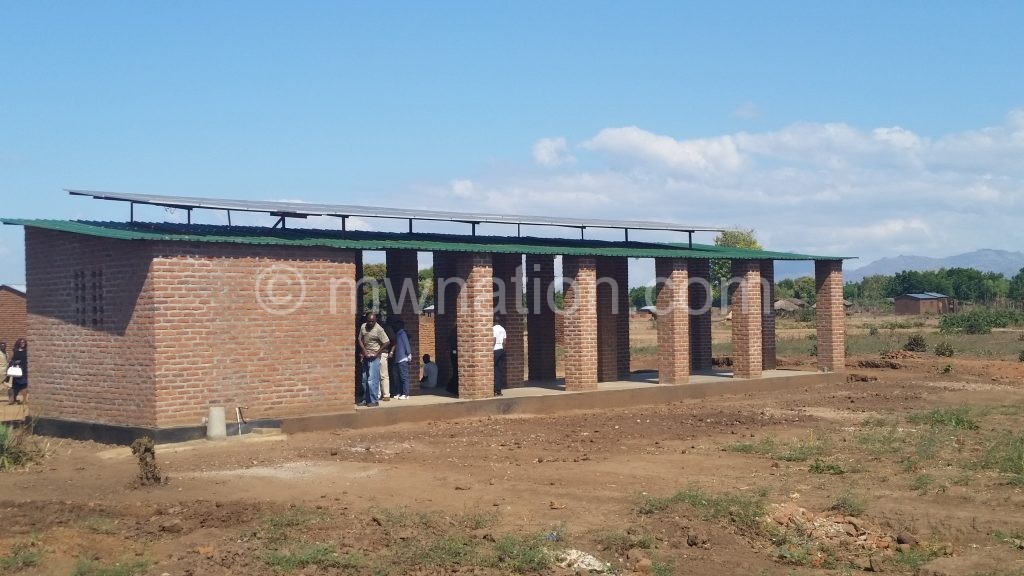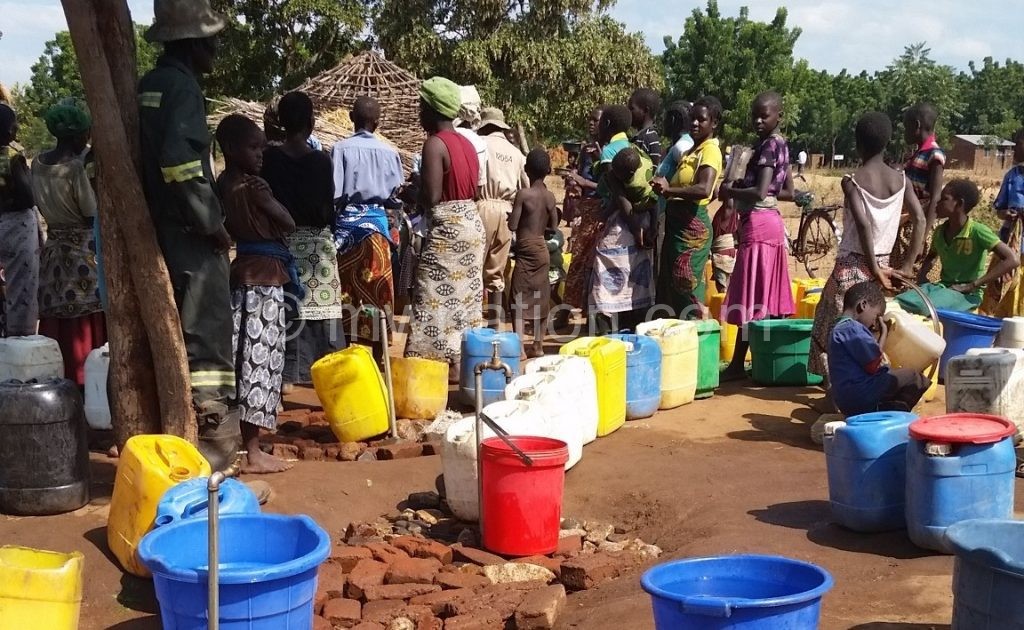Waiting to drink from taps
In this 21st Century, some villagers still wait for that day to see running taps. ALBERT SHARRA writes.
On a sunny Thursday afternoon, women and men in Makoka, Nsanje, gather under a Mlambe tree singing different praise songs. They are waiting for the guests—Churches Action in Relief and Development (Card) board members—who are on a tour to appreciate some of their works.

As two vehicles—one with journalists and a shuttle with Card board members on board—arrive, the group throngs the road, surrounds the shuttle as they break into choruses of praise.
“Zikomo a Card mwationetsa madzia am’mipope [Thank you Card for introducing tap water to us]” goes the song in part. There is joy and disbelief that finally, after 52 years of independence, they have running tap water.
In the faction, members of Makoka Solar-Irrigation Scheme are celebrating the dawn of ever flowing water at the scheme while villagers are rejoicing at the first ever tap water for domestic use.
Both are beneficiaries of Makoka Solar-Irrigation Scheme by Card, which has brought water to the area. Initially, says Card executive director Melton Luhanga, the solar pump was designed to supply water to the scheme, but observing the dire need for potable water in the surrounding communities, they extended the resource to the villages.

The story in the song is not complete. The villagers, especially women in Group Village Headman (GVH) Nsamba in Traditional Authority (T/A) Chimombo, have gone through hell in their quest for clean and safe water.
“We used to walk about five kilometres to a nearby river to draw water,” one villager, Magarate Majiga begins the story, adding: “She lost her long-time marriage because her husband thought she was taking advantage of the scarce resource to cheat on him.”
She is not alone, many women and girls have been sexually abused by men on their way to and from drawing water.
Esnart Laile, a teenager reveals: “If you turn down a proposal from a boy, you would meet him in the early hours of the day along the road to the river. He would touch your breasts, back and molest you in different ways.”
Beyond the abuse, health risks stood in their way. The water from the river was not safe.
“The rivers flow through several villages before ours and to draw clean water you need to go there as early as 3am,” says Laile.
GVH Nsamba thank God that no one has died of water-borne related diseases.
Although villagers in this area feel relieved as Card says the solar-powered water pump has a 25 year-lifespan, there are more people in Nsanje, who still live without access to clean and safe water. GVH Nsamba mentions areas such as Pachika, Tawo and Chindikano Two in T/A Makoko as some that require urgent intervention. About 10 kilometres away, Village Head Guta One says his people are waiting to drink water from the tap.
The problem cuts across Malawi’s rural areas. World Bank reports that 10 people in every 100 in the rural areas have no access to clean and safe water. Paradoxically, the majority of the reached 90 percent seldom have water all day every day as most documented water sources are either not supplied with water or broke down.
Researcher Blessings Chinsinga, deputy director for the Centre for Social Research (CSR), says CRS’s research with Tear Fund in the Water for All Project found that although there is now a good water coverage, most water points are either dysfunctional, far away or erratic, failing altogether the figures to translate to reality.
Over the last two decades, many hand pumps have been installed. However, Cleanwater.org exposes that 40 percent of these hand pumps in rural Malawi are non-functional.
Malawi recently ratified to the Sustainable Development Goals (SDGs) which under goal number 6.1, seeks to achieve universal and equitable access to safe and affordable drinking water for all, demands more than rhetoric in water supply, but to ensure the last man is reached with potable water.
World Bank estimates that Malawi loses about K8.8 billion to poor access to water, sanitation and hygiene services.
The water supply system in Malawi is categorised into three-city water boards, regional water boards and department of water at the ministry. The department is responsible for all rural areas.
Mercy Msowoya, spokesperson responsible for department admits that some water facilities are not functioning.
However, she says Malawi is doing good having beaten the Millennium Development Goals target of 75 by 2015, but says they are not relaxing because the SDGs demands more than this.
She outlines interventions: “We are rehabilitating water facilities that have lived 15 years as per their lifespan. The ministry is implementing a project on sustainable rural water and sanitation infrastructure which will be rehabilitating and expanding about 12 gravity-fed schemes in five districts.”
Msowoya says under SDGs goal six, Malawi has targets-to achieve universal and equitable access to safe water and affordable drinking water for all, access to adequate and equitable sanitation for all, improve water quality, substantially increase water use efficiency across all sectors, implement integrated water resources management at all levels and support participation of local communities in management of water and sanitation.
“We have country plans which must be achieved. The SDGs will have to be localised in these national plans as well as in the sector budgets,” she explains.
In addition to these, she says government plans to review the National Water Policy (2005) to address issues in the SGDs, construct new piped water supply systems in rural areas and market centres. Msowoya adds that there will be massive boreholes rehabilitation in rural areas with Unicef, DfID and European Union supporting 15 districts.





